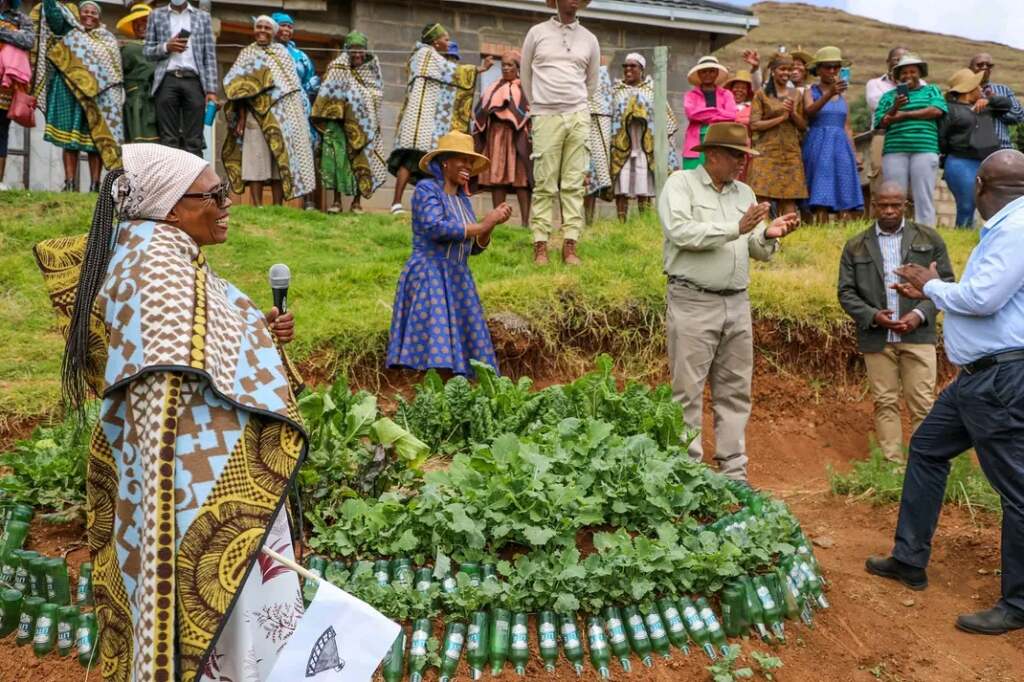Staff Reporter
The Director-General of the Food and Agricultural Organisation of the United Nations (FAO), Qu Dongyu has emphasized the need for Lesotho to develop its capacity for producing key agricultural inputs such as seeds and fertilizers to achieve food security.
Dr. Qu raised these sentiments during a meeting with the Minister of Foreign Affairs and International Relations, Lejone Mpotjoane, during his five-day visit to Lesotho.
Dr. Qu’s visit came in response to an invitation from His Majesty King Letsie III, who is an FAO Goodwill Ambassador for Nutrition.
During the meeting, Minister Mpotjoane welcomed the Director-General to Lesotho and expressed appreciation for the long-established relations and strong cooperation between the government of Lesotho and FAO.
Minister Mpotjoane highlighted that while the government had positioned agriculture as a priority, there were still shortcomings that needed to be addressed to achieve food security and transform the country’s agrifood systems.
He emphasized the need to establish an implementing arm within the Ministry of Agriculture to further develop the sector. Additionally, he called for the creation of a center to sell produce from smallholder farmers and to develop agro-processing, which would empower these farmers and improve their livelihoods.
He noted that this initiative would also benefit school feeding schemes and address malnutrition, a significant challenge in the country, especially for children from less privileged families.
The Minister solicited FAO’s support in setting up an implementing arm within the Ministry of Agriculture to further develop the agriculture sector, and the establishment of centers for agro-processing.
The Director-General thanked the Minister for the warm welcome and noted that Lesotho’s strategic position, with its entire altitude above 1000 meters, provides an advantage for growing and diversifying agricultural outputs throughout the year.
Dr. Qu agreed that establishing an implementing agency for agriculture was crucial, but emphasized that developing inputs such as seeds and fertilizers was even more critical. He also stressed the need for a comprehensive institute for research to facilitate implementation.
Lesotho is currently relies on imports for its key agricultural production inputs such as seeds an fertilizers.
Dr. Qu suggested that proposals for its establishment could be prepared and presented to development partners with FAO’s technical support.
He also highlighted the need to establish a standards monitoring institution and emphasized the importance of private sector engagement for processing and selling end products. He stated that value chains should be established after feasibility studies to ensure sustainability.
Summary
- The Director-General of the Food and Agricultural Organisation of the United Nations (FAO), Qu Dongyu has emphasized the need for Lesotho to develop its capacity for producing key agricultural inputs such as seeds and fertilizers to achieve food security.
- During the meeting, Minister Mpotjoane welcomed the Director-General to Lesotho and expressed appreciation for the long-established relations and strong cooperation between the government of Lesotho and FAO.
- The Minister solicited FAO’s support in setting up an implementing arm within the Ministry of Agriculture to further develop the agriculture sector, and the establishment of centers for agro-processing.

Your Trusted Source for News and Insights in Lesotho!
At Newsday Media, we are passionate about delivering accurate, timely, and engaging news and multimedia content to our diverse audience. Founded with the vision of revolutionizing the media landscape in Lesotho, we have grown into a leading hybrid media company that blends traditional journalism with innovative digital platforms.








